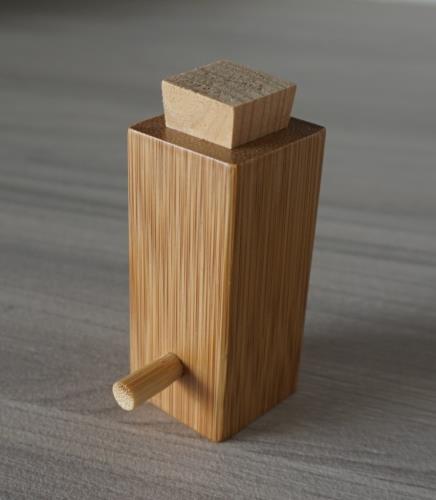An experienced arts educator and columnist who lived in Tokyo and London from 1980 to the 90s. Especially interested in creative industries.

There is a saying that opportunities are only for those who are ready for them. You may not know where this saying comes from, but the gist of it is hardly disputed. Other than opportunity, we have also, in recent years, discovered more about risk. Some people like to say that opportunities breed risks, and that risks and opportunities often come hand in hand. This is in essence what the ancient said: “disaster and fortune are inter-dependent, while fortune is begotten from disaster.” (from Laozi, Chapter 58) It means that fortune and disaster are related and can mutually affect the other. Disaster is the prerequisite of fortune, while fortune has the element of disaster. In other words, good and bad things can influence each other, and under certain conditions, what is good can turn sour, or on the other hand, what is bad can lead to a good ending.
While all these may be quite familiar to you, if you have not lived in Macao in the past 15 years, then you cannot quite understand what it is like to experience the poverty after a period of affluence. The government once enjoyed a massive fiscal revenue in the past few years, boasting an astronomical figure of MOP 300 billion, whereas in recent years has paled into insignificance. This is certainly worth our reflection. Many friends feel that the government’s aim to promote arts and culture is the right policy, but then it seems that we have idly wasted the golden opportunity to do so when Macao was powerful. Now, with the continuous drop in gambling tax revenue, many of those who had once supported the policy have done nothing and now changed their minds. By offering policy support, the government has hoped to encourage more private capital to promote arts and culture, but so far the results are hardly satisfactory. This outcome might be due to the natural tendency for people to become reliant on external factors. Therefore, if you find yourself in the busiest regions in Macao, all you can see mostly are jewellery stores and shops selling local food products such as beef jerky or almond biscuits, followed by pharmacies selling milk powder and medicine. If you look further, perhaps you can notice a variety of restaurants and eateries, but will hardly be able to find any traces of arts and culture. What gives rise to this? After all, it is not too hard to understand that, with the high rental prices, what is unpopular cannot be sold and is doomed to fail. On the other hand, anything that sells can fetch a good price and can afford high retail rental. If you have any doubt, look no further than the prosperity at Avenida de Almeida Ribeiro.
Having said that, will you actually open a jewellery store or change to selling beef jerky or almond biscuits? For those interested in imagination and writing away on a computer, your interests must be very different from those who are hunting for profits. After all, if arts and cultural enterprises are just a matter of pure business, then it will be subject to the same laws of cost control and the reality of the market. Moreover, what does one mean by arts and culture? To speak the truth, if you are good at business and your customers are pleased with your products or consider your services as creative, or if they find what you are selling are both practical and interesting, and capturing the character of the city, then perhaps your merchandise can be said to be creative arts and cultural products. But you need not fret how the products are received. The simplest way is to start with the art of trading, and then reflect on the favourable environments and conditions in which you last bought lots of souvenirs. Perhaps then you will have a better concept towards making a business success out of this arts and cultural enterprise.